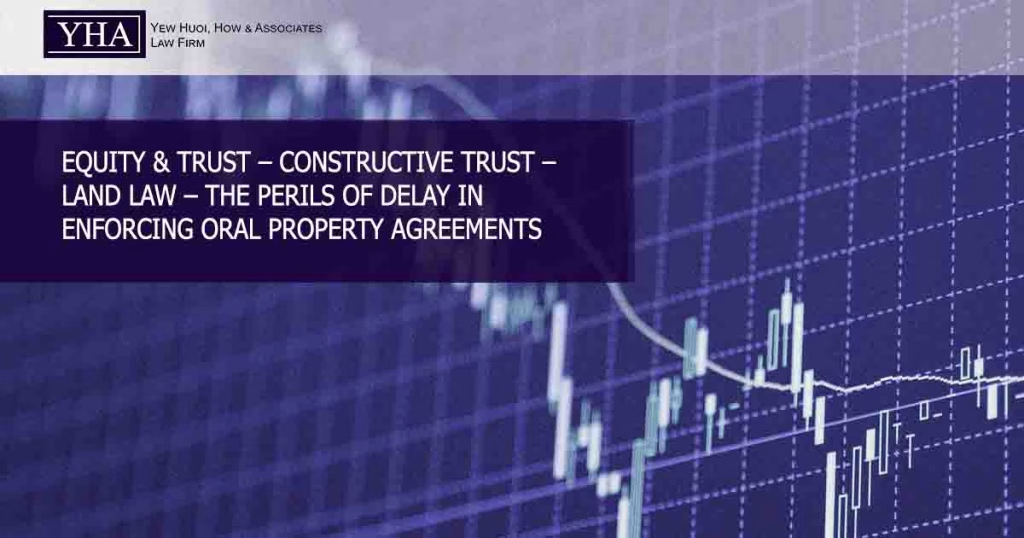Illustrative Scenario
In this scenario, the property in question was registered under the name of X (the “deceased”). Y alleged that X owed him a significant sum of money and claimed that X had orally agreed to sell the property to him for RM150,000. According to Y, the purchase price was to be partially offset against the debt owed by X, with the remainder paid in cash.
Y subsequently paid RM50,000 to X and took possession of the property. Since then, Y has paid all property assessments and invested a substantial amount in renovations. Y intended to transfer the property title to his name, but the transfer was never completed. For over 10 years, the fact that Y occupied the property without being registered as the owner was neither disputed nor challenged until X’s wife locked the property gate following X’s death.
The central issue here is whether Y can obtain a declaratory order that X was the beneficial owner of the property and held it in trust for Y.
Legal Principles & Laws
- The Torrens System of Land Law: In Malaysia, the Torrens system guarantees the indefeasibility of title upon registration, as outlined in sections 92 and 340 of the National Land Code.
- Exceptions to Indefeasibility: Exceptions to the indefeasibility of title are provided under section 340(2) of the National Land Code.
- Equitable Remedies: However, the courts have recognized that the Torrens system does not prevent equitable remedies where the rights of third parties have not been affected.
Application to Scenario
- Y’s Claim and Evidence:
- Y’s claim is unlikely to succeed due to two key factors:
i. Y failed to enforce the transfer of the property during X’s lifetime, despite more than 10 years passing before X’s death. This delay suggests that Y neglected his rights.
ii. Y has not provided sufficient evidence to establish the existence of a contract for the sale and purchase of the property or to prove a trust relationship between him and X concerning the property.
- Y’s claim is unlikely to succeed due to two key factors:
Reference Case
- Ng Kim Wan v Yap Chee Eng (wakil diri kepada Yap Tong Leong) [2024] MLJU 1188 (Court of Appeal)

